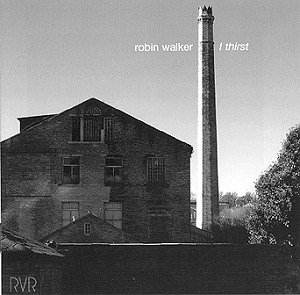In
an age when so much Ė too much Ė new music is hardly more than
soulless note-spinning striving for effect, Robin Walker stands
apart, a classicist at heart, who writes from the heart in a wholly
contemporary idiom, at once distinctive and attractive; in short,
he is that modern rara avis, a composer whose music leaves
you wanting to hear more. This impeccably produced, performed
and recorded disc presents a conspectus of his developing work
over two decades, ever subject to experiment and expansion into
new fields, ranging from Dance/Still, the chamber piece
which first brought him to public notice, to the neatly titled
His Masterís Voice, a 70th birthday tribute to his composition
teacher, David Lumsdaine.
One
could say that Walker is Robert Simpsonís natural successor in
his command of large organic structure juxtaposing vitality with
stasis in the true sense of both words. Like Roussel, following
two study visits to India he has drawn inspiration, particularly
rhythmically, from the culture of that continent, and overall
one senses a French provenance (or as the composer himself puts
it, a precession), matching the timeless strength of Varèse,
Messiaen and, to my ears particularly, Koechlin. Remarkably Robin
himself is not familiar with Koechlin, yet he aspires to the same
fusion of energy and stillness; listen to the opening of the second
part of Dance/Still Ė for a moment, it could almost be
from Le livre de la jongle. This comes across again awesomely
in the organ work, Dances with Chant and Chorales, filtered
through the prism of childhood recollection as a York Minster
chorister of the grandeur of the Minster organís Full Swell, and
equally in the string quartet, I Thirst, with its clouds
of natural harmonics.
A
further organ piece, Invention, takes as its starting point
a very different French idiom, that of the virtuoso tradition
of Dupré et al, not to mention Walkerís first and much
revered teacher at the Minster, Francis Jackson, whilst Halifax,
written by contrast unusually and most effectively for the pianola,
reveals an unexpected vein of Yorkshire humour beneath its celebration
of a native heritage. Living as he now does just across the Pennines
in Lancashire, it is no surprise that Walker has responded to
another more recent virtuoso tradition, that established by the
Manchester-based recorder player, John Turner, for whom he has
written ten pieces; two of these, stunningly played, are included
on this CD.
Readers
of British Music volume 21 may recall Robinís account of
how he grew up on the very road in York in which William Baines
had lived and died at the age of 23 some thirty-odd years before.
The spiritual affinity between these two composers of different
eras goes far deeper than that simple coincidence, and the extended
piano work, At the Grave of William Baines, is a direct
response to a pilgrimage made to the grave on the 100th
anniversary of Bainesís birth. There is no superficial homage
here replete with quotations Ė this is pure Robin Walker, albeit
infused throughout with Bainesís spirit, and the emotion is intense,
filled with frustration, and ultimately resignation, at the waste
of creative instincts thwarted by ill health. It is played magnificently
by Peter Lawson. David Fanning calls Walkerís half-hour symphonic
poem The Stone Maker "one of the outstanding achievements
in British music of the 1990s", and, objectively setting
aside my own Bainesian associations, I cannot but think that the
same applies to this piano work, at least as significant in the
context of 1999 as was the impact of Bainesís own Paradise
Gardens exactly eighty years previously.
Where
next? There are hopes of a recording of Walkerís 40-part madrigal,
recently broadcast by the Tallis Scholars on BBC Radio 3, and
meanwhile the world of opera beckons.
Roger
Carpenter
